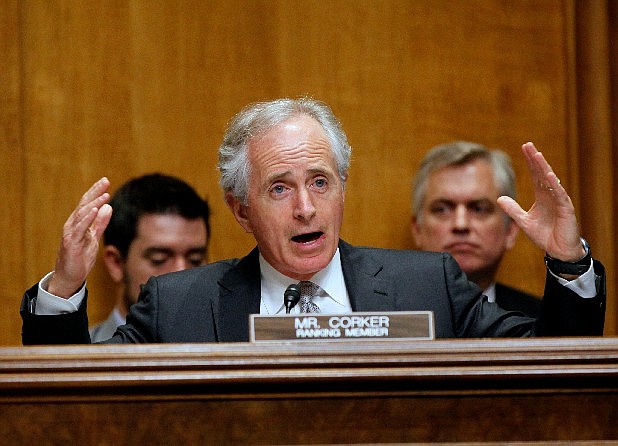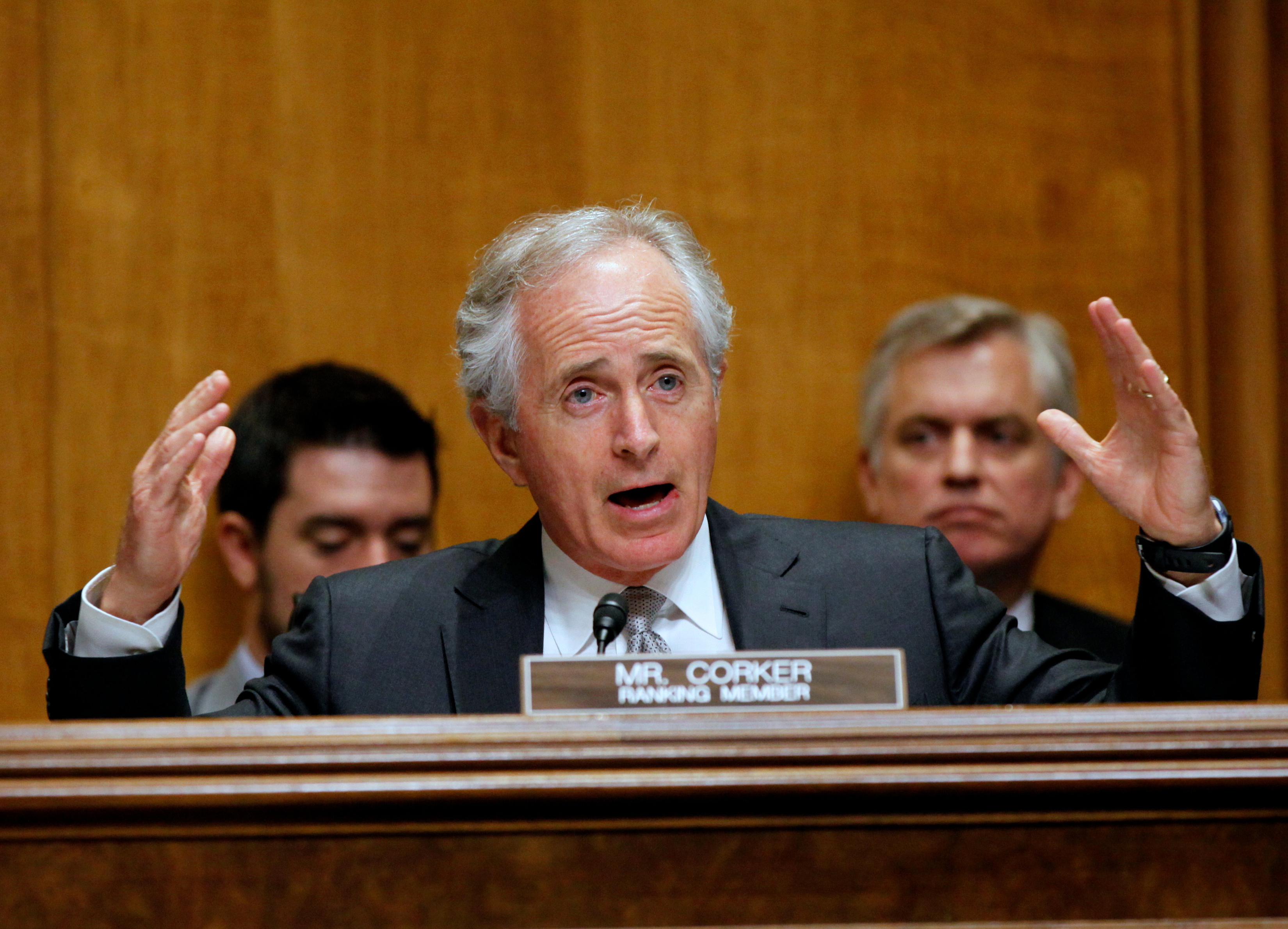U.S. Sen. Bob Corker said Friday he's not opposed to the idea of a works council at Volkswagen's Chattanooga plant, but he called the United Auto Workers "a destructive force."
Also, Corker said he feels "very good" about potential production of a new sport utility vehicle coming to VW's Chattanooga plant.
"We're sitting in good shape," the Tennessee Republican said, though he added that he doesn't know whether the automaker has made a decision to build the SUV here.
Corker, who was in Chattanooga for the unveiling of the new local office of the German-American Chamber of Commerce of the Southern United States, said he told a top VW labor leader in a meeting in Nashville last week that the idea of a works council labor board is an interesting one.
"I'm not opposed to unions," the former Chattanooga mayor said. "I used to be a union member myself."
But, he said, VW's workforce affiliating with the UAW would be "taking them backwards."
Corker said one of the works council concepts is to improve collegiality. He cited recent statements from the UAW's top leaders in which they talked about "confrontation and fighting."
"There's no way I believe the UAW would change its stripes and work in a collegial way when their whole process is built on confrontation," he said.
He said that when he met last week with Bernd Osterloh, VW's global works council chief, Osterloh told him there was no link between plant expansion and affiliating with the UAW.
The UAW has said the majority of the plant's rank and file workers have signed cards asking the union to represent them. UAW officials would like VW to recognize the union without a vote by the workforce.
UAW supporters have said the Chattanooga plant is the only major factory of Volkswagen's more than 60 worldwide without a works council and that the plant would have a bigger voice within the company if it had such a labor board. VW and the UAW have said that U.S. labor law calls for workers to affiliate with a union in order for such a labor board to be created.
The UAW has said that if Chattanooga workers choose to have representation and a works council, the union is committed to engaging with VW in "open, fair and respectful dialogue to create an environment where Tennessee workers can participate in VW's global works council system."
However, Corker called for a secret ballot election.
"If you want employees to have total freedom to express their views, the only way to do that is a secret ballot," he said.
U.S. Sen. Lamar Alexander, R-Tenn., also is pushing for a secret ballot election. Alexander said recently that for VW to recognize the UAW without a National Labor Relations Board-certified unionization vote "would be totally against the culture of our state."
"I want every employee to have the right to vote on whether or not they want to be represented by a union and I don't think that right is respected when a company recognizes a union based upon a collection of cards by a union organizer," Alexander said. "It's not the company's decision; it's the employees' decision."
But Alexander, who as governor helped recruit both the non-union Nissan and the "General Motors-UAW partnership" that built the Saturn plant in Middle Tennessee, stopped short of criticizing the UAW's presence in Tennessee.
Unlike Corker and Gov. Bill Haslam, who worry that more UAW members will hurt business recruitment and job growth, Alexander said last week that Tennessee should remain attractive if it keeps its right-to-work laws that allow workers the choice about whether to join a union, even in a union-represented company.
"There is nothing that has been more important to attracting the auto industry to Tennessee over the last 30 years than its right-to-work law," Alexander said in a meeting with reporters and editors of the Times Free Press. "My goal is to protect the employees of Volkswagen -- or any other place in Tennessee -- to have a choice about whether they want to have a union by a secret ballot."
Alexander said the differences in outcomes for the two auto plants he recruited to Middle Tennessee -- Nissan to Smyrna in the early 1980s and GM-Saturn to Spring Hill in the late 1980s -- show the differences a union presence can make.
"Surely anyone who comes to the state to make autos would look at Nissan's example," Alexander said. "They came here and built the plant from scratch [without a union] and they've grown into the most efficient and largest car and truck assembly plant in America."
Contact Mike Pare at mpare@timesfreepress.com or 423-757-6318.

